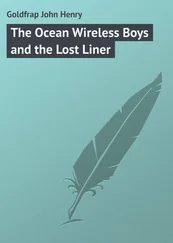“You mean to tell me you don’t understand how we got here?” asked Marco.
“I’m beginning to. But I wouldn’t travel without a guide. We’d probably end up getting sucked into a black hole or stuck forever in some time warp, never to return.”
This was hardly reassuring. “Then how did we get here?”
“I’m terribly sorry. You haven’t met our guide yet, have you? Alaniah. She seems to have fluttered off somewhere. Visiting friends, most likely.”
Marco looked around, beyond the fountain and his puzzling companion. There were flower gardens and more fountains. There were orange and lemon trees with benches under them. There were plenty of humans, all in strange dress. Most were reading. Maybe not so bad, he thought. “What is this place?”
“Ah, a question with an easy answer. Welcome to the Library of Alexandria.”
“A library? It looks more like a park.”
“Your vision is limited, Marco. Look further,” said Cicero.
Marco stretched his neck. Buildings surrounded the gardens, enormous structures even from a distance.
“Which one is the library?” he asked, dazzled by the immensity.
“All of them. Every one is filled with books and scrolls, paintings and art.”
“All of them?” he asked, wishing he didn’t sound so daft.
“Come on, let’s try out our legs.” Cicero jumped down from the ledge and Marco followed, wobbly as a newborn kitten.
“Better to walk it off,” Cicero said as he set off on the wide pathway.
They meandered through gardens, people watching. Some sat on benches, others sprawled on the grass. Some were reading and others sat at tables littered with books and tea cups, men animated by lively discussions.
Cicero explained as they walked. “This library was designed to be the greatest center of learning ever built, to be more than simply a building that stores books, but a place where humans would discuss the ideas in them. What a grand idea come to life!”
They passed a small gathering of people debating whether the earth was flat.
“They say there are over a half million books in dozens of languages here,” Cicero continued.
Out of every people-cluster Marco passed, he heard snippets of spirited conversation about heaven and earth and various names—Copernicus, Hypatia, Ptolemy and Plato.
There were cats too. They sat on laps or under benches, but none of them paid any attention to them. After this leisurely stroll, Marco’s legs felt sturdier and they had reached one of the buildings he’d seen from a distance. The massive stairway was as wide as the building. The doors were almost as tall and Marco craned his neck to see the writing above one of them. He had only read, “The place of the cure of the soul… ” when the doors swung open and a group of young men burst through, their arms full of scrolls.
“Now’s our chance! Hurry!” commanded Cicero. He swiftly scooted between a tangle of legs and disappeared into the building. Marco was too busy gawking, and the doors closed with a thud. Alone on the covered portico, he wandered the wide, now empty space, feeling insignificant in the presence of such immensity.
After what seemed like forever, the door opened narrowly and a young boy squeezed through. Marco took his chance and darted into the slit, his tail caught by the closing door. He yelped as he shot into the building and almost missed Cicero, who was resting under a bench.
Marco washed his bruised tail, which did not hurt as much as his injured pride.
“Keep up with me,” Cicero ordered. “If you dawdle or wander off, we may never find each other in this place.”
Marco kept silent. Instead he considered the library building as he trotted along behind Cicero. Light streaming in from lofty windows on the pale blue walls gave the impression they were still outside. Clay pots and baskets invited him to investigate. Giant marble columns drew his attention upwards to a ceiling dotted with domes and skylights. A pool of clear running water called him to drink, but he didn’t dare stop. Cicero was moving at a good clip.
Passing through a towering arched doorway, they entered a room full of long high tables where young men stood, busily engaged in something Marco could not see. They were not discussing the stars or navigational charts, but their intense, focused energy saturated the room.
“What is that strange sound?” he asked Cicero.
“Books were hand printed in the fourth century,” Cicero said. “That is the sound of many reed pens put to papyrus—the sound of the scribes.”
Young boys carried bundles of rolled papers in and out of wide interior doors. Their conversation, muted and sparse, drifted upwards. Marco yawned and thought fondly of a nap.
Suddenly a group of men burst through the doors and several young boys rushed over to receive armfuls of rolled papyrus. With practiced efficiency, the young attendants distributed them to the scribes.
Marco and Cicero had sought refuge from the hustle and bustle, observing the surge of activity from under a bench.
“A boat has come into port!” Cicero declared. “I love the harbor. We must go down there sometime. They are always plenty of fish heads for the taking.”
The mention of food made Marco hungry, but he asked, “What do boats and fish heads have to do with the library?”
“Boats bring books! Merchants brought their books and scrolls with them on their long journeys. Even the new Roman codices found their way here. Alexandrians valued them even more than merchants’ goods, because all scrolls and books were taken before their owners were even allowed to disembark.”
As if illustrating his story, hundreds of papyrus scrolls were being rolled out in the hall.
“You see, the scribes waste no time,” Cicero said. “When they are finished copying, runners return them to their owners still on the ships. I’ve heard rumors, though, that the original books often stay here, and their owners only got back a good copy.”
Cicero scooted out from under the chair. “Come. Now I want to show you something really interesting.”
Marco was perfectly content to stay under the chair. Why leave this beautiful dreamlike palace full of books? He began purring himself into a nap and allowed his eyes to close.
"Suit yourself," said Cicero.
Even with his eyes closed, Marco felt Cicero’s absence. He opened one eye in time to see him heading towards one of the doors.
For a brief moment, he thought of the advantages of being on his own. Without this mysterious companion who seemed bent on leading him into stranger and stranger territories, he would be free to plant himself right here. As appealing as the idea was, something made him get up anyway.
Curiosity and Cicero’s magic. They drew him like a magnet.
Maybe I’ll just see where he’s going. It can’t be any stranger than time traveling.
Chapter 12: Strange passage
Marco had to scurry. He almost lost him when the old cat disappeared in a tangle of legs. Marco maneuvered his way through the crowd, barely catching sight of the tip of his tail, when Cicero made yet another swift turn. Marco broke into a run, dodging library patrons and scribes.
Cicero was disappearing down a long gloomy hallway. No more spacious, sky lit rooms, or the hustle and bustle of activity. Another turn and Marco was following Cicero down a dim stairway, one that seemed to be plunging them deeper and deeper under the great main hall. With each step, the passageway grew darker. With each turn of direction, Marco felt doubt and anxiety turning his stomach.
Why was Cicero always taking him down dark stairways? Once again, he bemoaned his decision to follow this cat. He swore that, if he ever escaped, he would go home and take his adventures from books—and only from books.
Читать дальше












